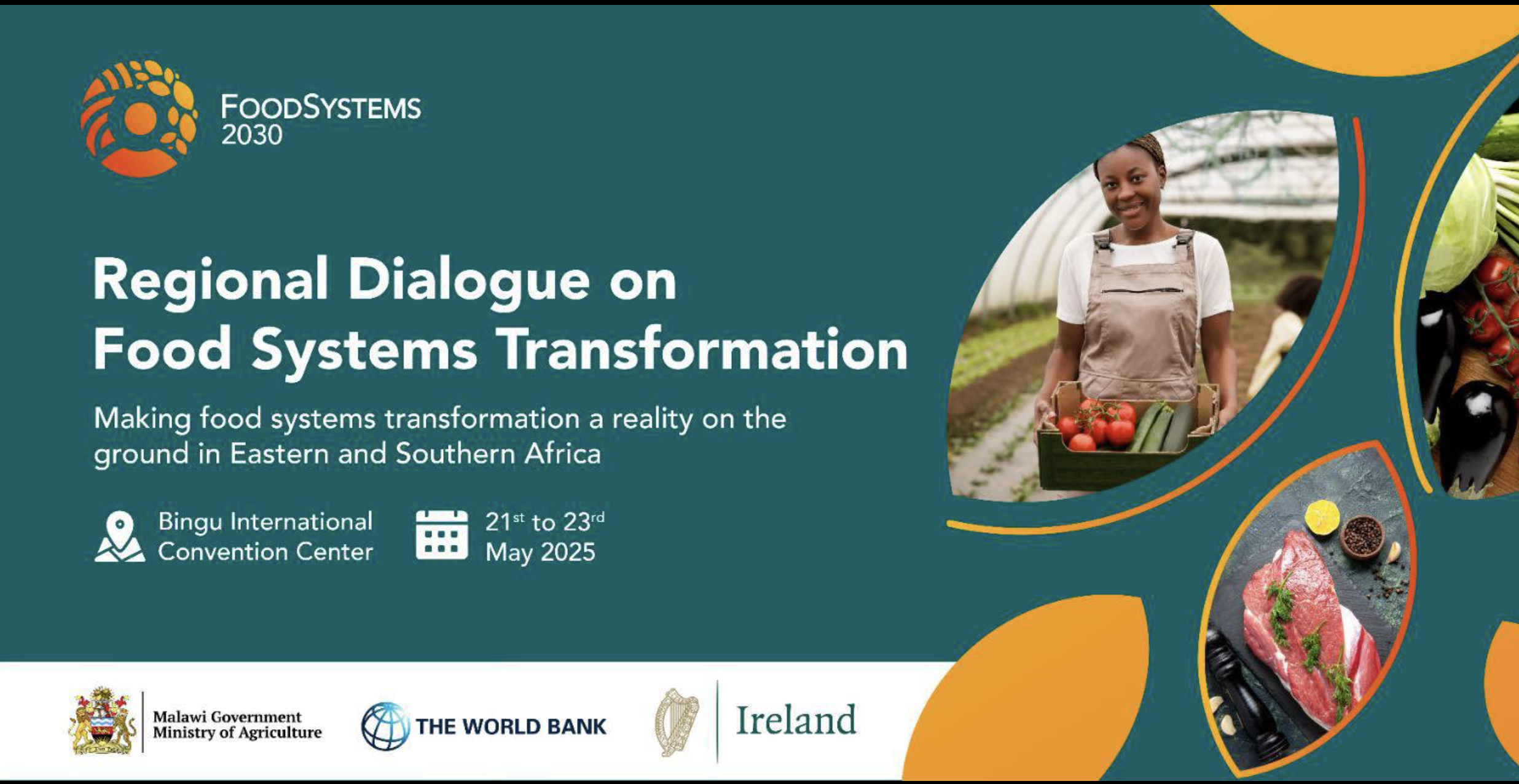
By Special Correspondent | Lilongwe, Malawi — May 2025
As the Regional Dialogue on Food Systems Transformation progressed in Lilongwe, a vital message emerged from Mansur Ahmed, Senior Economist with the World Bank’s Department for Agriculture and Food: Africa cannot afford to reform agricultural subsidies without deep data systems, institutional learning, and financial innovation.
Presenting a compelling case for how the repurposing of agricultural public expenditures can deliver sustainability, equity, and growth, Mansur’s session—“Data, Reform, and Innovation: The Gears of Repurposing Support for African Agriculture”—provided a sharp, evidence-based lens on how policy redesign must be anchored in facts, not assumptions.
“Reform is not about cutting costs—it is about realigning priorities,” Ahmed declared. “We are not just asking how much we spend, but how we spend it, and for whom.”
Context: The Repurposing Imperative
Ahmed began by acknowledging the longstanding criticism that Africa’s agricultural subsidies have become bloated, inefficient, and misaligned with modern food systems transformation goals. Programs focusing on fertilizer subsidies and seed distribution—while politically popular—have failed to lift productivity, reduce poverty, or regenerate the land at scale.
This is why, he explained, the FS2030 Multi-Donor Trust Fund was established. By December 2024, the fund had allocated over US$100 million in grants across seven pilot countries—including Malawi, Tanzania, Ghana, and Indonesia—to test new methods of repurposing agricultural support programs toward more productive, sustainable, and resilient outcomes.
“In Malawi and Bangladesh, we’ve tested e-vouchers for fertilizers. In Colombia, we’ve facilitated finance access for smallholders. In all countries, we are using reforms as a way to build a new contract between governments and farmers,” he noted.
The Power of Data: Turning Reviews into Reform
Central to Mansur’s argument was the need for robust data collection, expenditure reviews, and impact tracking. He revealed that many African governments lack updated Agricultural Public Expenditure Reviews (AgPERs), which limits their ability to know what’s working—and what’s not.
“Policy without data is like farming blindfolded,” he warned.
The World Bank, through its AgPER and policy diagnostics teams, is now supporting country-level ‘deep dives’ to uncover inefficiencies and reallocate budgets toward:
- Soil health regeneration
- Climate-resilient infrastructure
- Targeted extension services
- Market systems and logistics
By shifting funds away from blanket subsidies toward these transformative areas, countries can build equity, impact, and sustainability into their agricultural portfolios.
Global Innovation, Local Application
Ahmed emphasized that repurposing must be context-specific. “What works in Vietnam might not work in Zambia. But what matters is the principle: realigning agriculture policy with evidence and future needs.”
He highlighted examples of global innovation with local adaptation, including:
- Bangladesh’s e-voucher system for fertilizer, now being tested in Malawi
- Colombia’s smallholder credit guarantee schemes
- Ghana’s shift from general subsidies to targeted market development support
Tanzania, he noted, is also reforming its fertilizer subsidy model by linking inputs to soil testing, using geographic targeting tools, and building digital subsidy platforms.
“These are not just fiscal reforms. They are governance reforms. They create transparency, reduce leakage, and empower farmers to make decisions,” he said.
Bridging Finance and Policy: A Missing Link
In what may have been the most strategic insight of the session, Ahmed underscored the critical disconnect between policy planners and financial institutions.
“We have progressive policies on paper, but they collapse at the financing stage,” he said.
To bridge this gap, Ahmed called for:
- Blended finance models that mix grants, concessional loans, and commercial capital.
- Program-for-Results (PforR) instruments that tie disbursements to reform outcomes.
- Agri-Sovereign Bonds—a new concept where governments raise climate-smart agriculture capital directly from markets.
“Let us stop treating agricultural budgets as sunk costs and start treating them as investments—with returns in nutrition, climate, and livelihoods,” he urged.
The Role of Development Partners: Fund Experiments, Not Formulas
Ahmed issued a clear challenge to development partners: stop funding templates, and start funding local experimentation.
“Too often, reforms are donor-driven and disconnected from the political economy of the country. What we need now are platforms that let countries test, learn, adapt, and scale,” he said.
He praised the FS2030 Trust Fund for creating space for pilot programs and stressed that more partners must be willing to fund:
- Policy diagnostics and analytics
- Institutional capacity development
- Iterative program cycles, not one-off projects
“Think like venture capitalists,” he said. “Fund what might work, then scale what proves it can.”
Final Thought: “You Can’t Drive Change Blindfolded”
As Mansur Ahmed concluded his presentation, he left delegates with a powerful message: “We cannot drive policy change blindfolded, nor can we afford to reform without rigor.”
His call was not just for better policies, but for smarter governments, braver funders, and more empowered farmers.
If African countries heed his advice, repurposing agricultural support may cease being a donor slogan and become a defining legacy of a continent choosing long-term transformation over short-term populism.

One thought on “Mansur Ahmed Calls for Data-Driven Policy and Financial Innovation to Unlock Agricultural Reform in Africa”
Comments are closed.